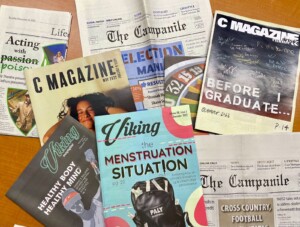More Widgets, Fewer #2 Pencils
With last week’s launch of the $350m federal grant program last week, National Journal is hosting a conversation about student assessment. Here’s my contribution.
Students should be assessed all day every day but not the way we do it today. We currently attempt to use 1950 tests for instructional improvement, student progress, school accountability and increasingly for teacher evaluation—all over weighted toward reliability (i.e., cheap) rather than validity. Assessment should be largely invisible and incorporated into learning experiences and performance demonstrations.
The exciting opportunity right in front of us is the potential for assessment frameworks flexible enough to incorporate the flood of keystroke data to come from learning games, simulations, virtual environments, adaptive assessments and online end of unit quizzes. This world of instant feedback will be especially useful for students and teachers—if we don’t get in the way. Here’s a couple postcards from 2015 if you want examples.
A comprehensive online assessment system, possibly including merit badges, would also take the pressure off end of year exams. Key will be using these grants to build something more like a widget platform with a lot less #2 pencils and bubble sheets
Catherine Gewertz, EdWeek, wrote a good summary of the federal grant program that has forced states into the 1) lock in gains with cheap/uniform tests group, or 2) there must be a better way to incorporate student work group. The problem with the grant program are the intended recipients—states are broke, under pressure to adopt new standards, and don’t have the capacity to innovate. Let’s hope there are a few interesting assessment consortia in the i3 applications.








0 Comments
Leave a Comment
Your email address will not be published. All fields are required.